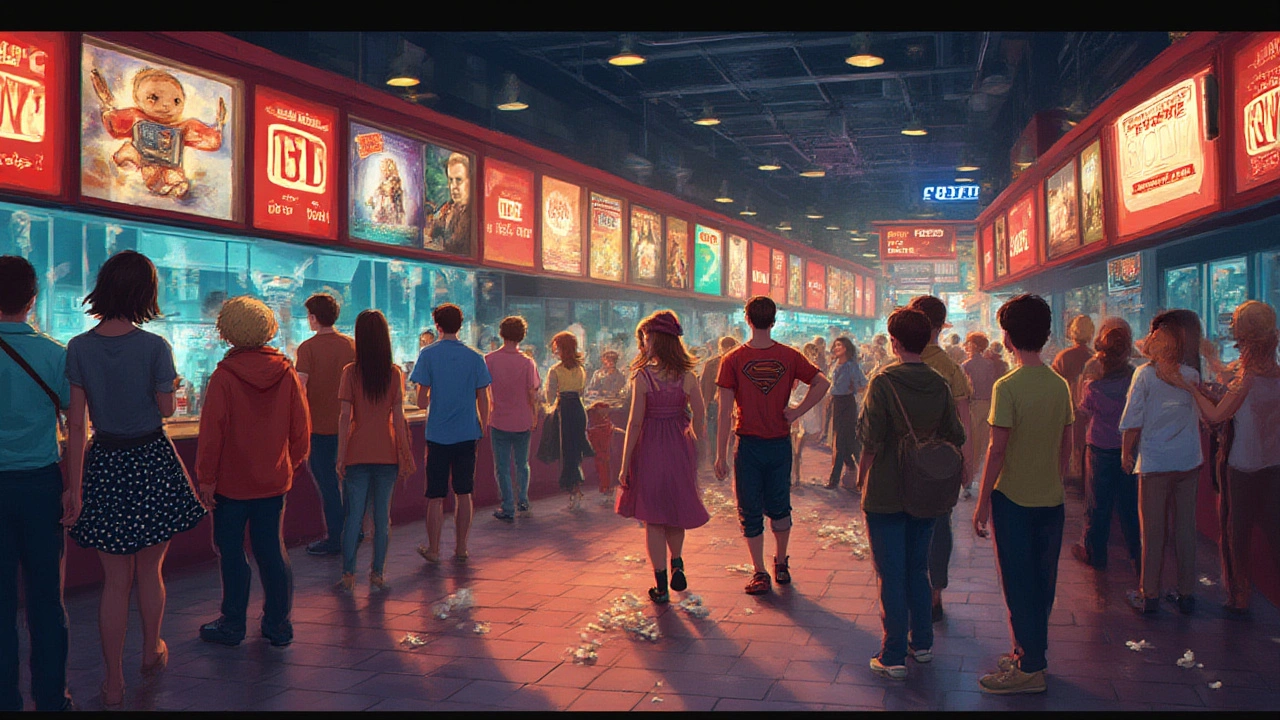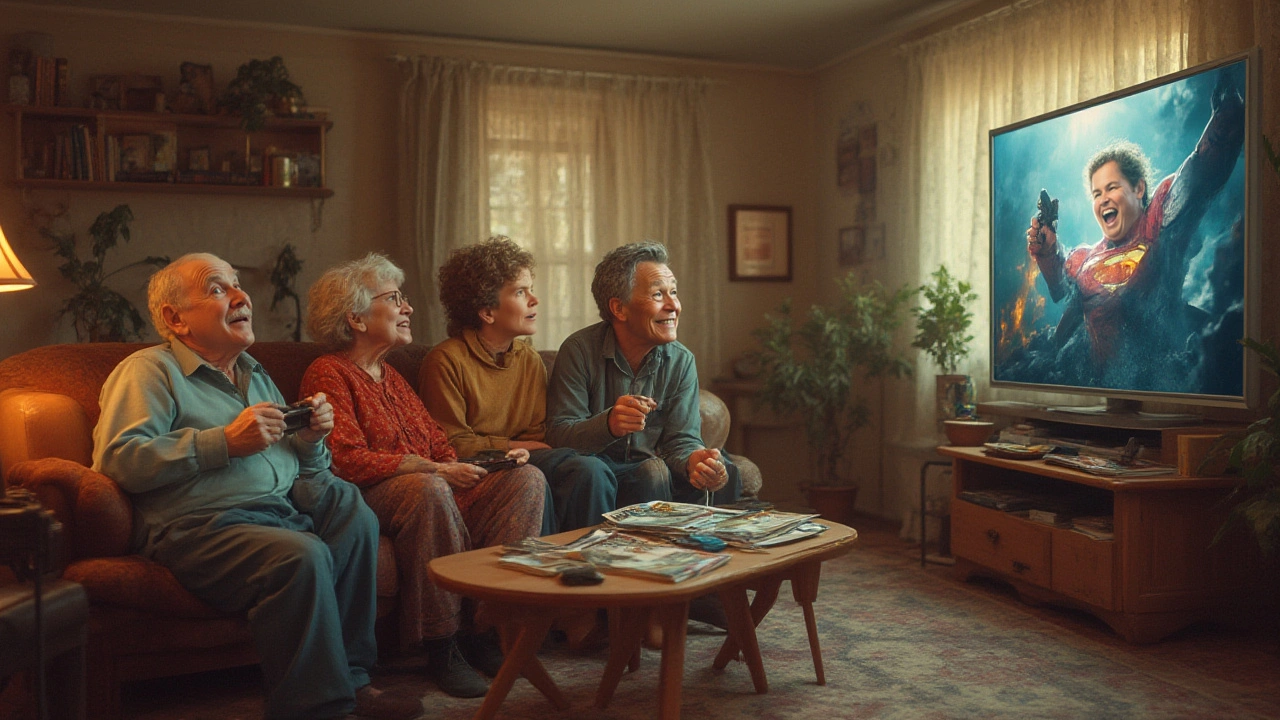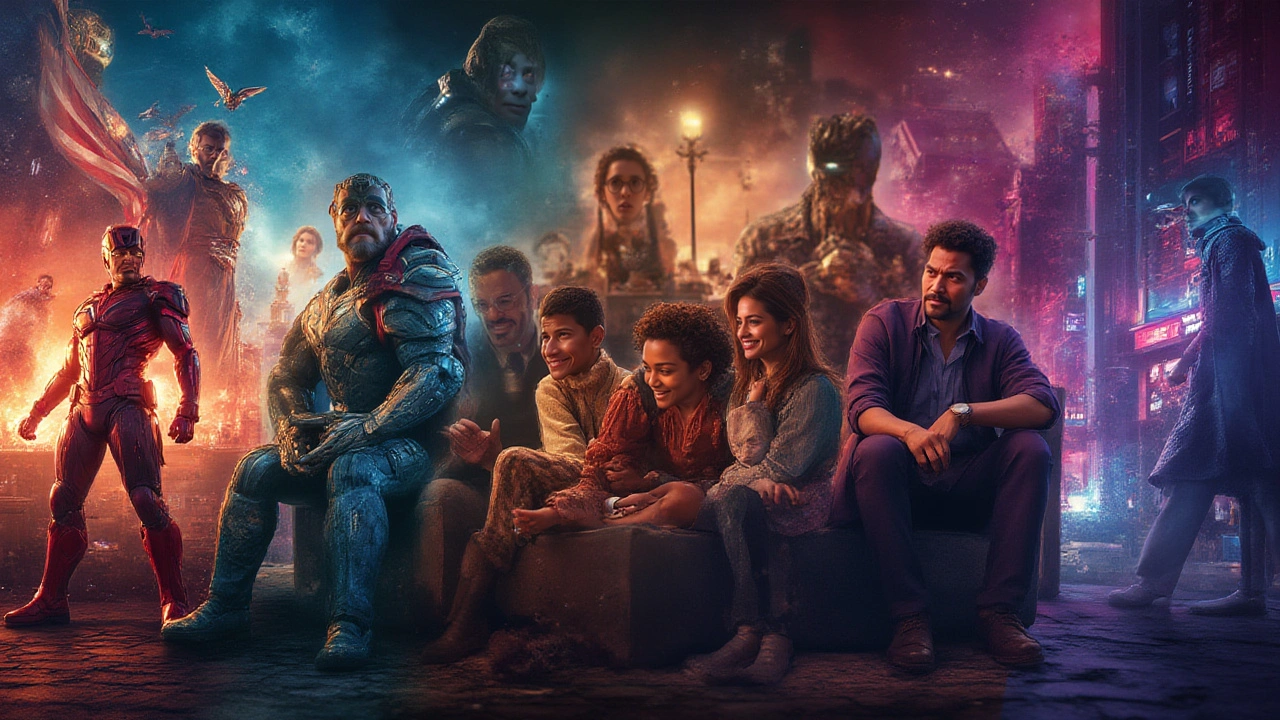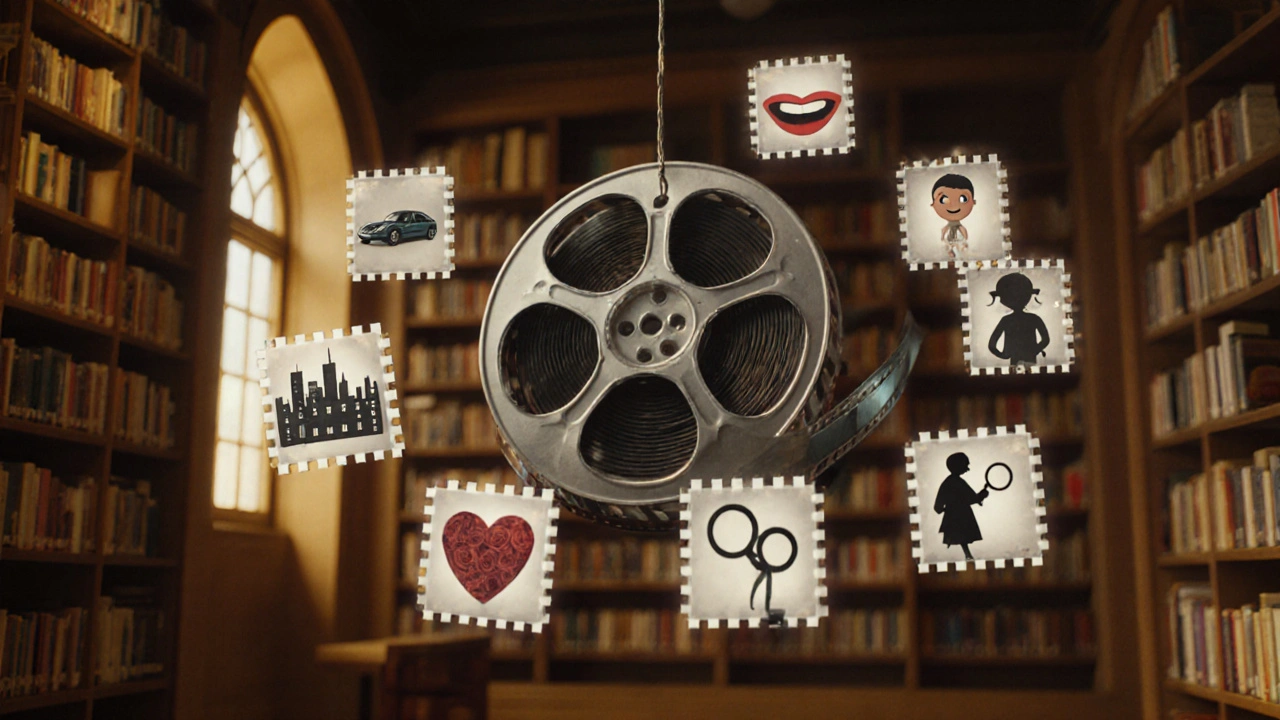Suspense keeps most audiences hooked, but when it comes to what truly makes people hit play, head to the movies, or scroll for hours searching for ‘something good,’ three genres hog the spotlight—year after year. If you look at box office numbers or streaming stats, you’ll see the same few faces popping up at the top, whether it’s 2021 or right now in 2025. Some might say tastes change, but when you zoom out, certain genres just refuse to let go of their crown. Why do we crave these stories so much? And what makes them so irresistible in a lineup of dozens? Dive into what really drives people to watch, rewatch, and convince others to join in—sometimes even before they know what the story’s about. The numbers don’t lie, and the reasons might be more personal than you think.
Why People Flock to Action, Comedy, and Drama
Let’s kick things off with three genres that’ve got everyone’s fingerprints on them: action, comedy, and drama. If you go by raw revenue and audience numbers, these aren’t just the most popular genres in the world—sometimes it feels like they’re the only genres that matter. Data from the Motion Picture Association shows that since 2020, action movies alone make up nearly 40% of all box office earnings globally, a trend fuelled by superhero hits, adrenaline-pumping stunts, and mega-budget franchises like Marvel and Fast & Furious. And comedy? Even in tough times, people crave a laugh. Netflix’s own stats show comedies land in the service’s top 10 almost every week, whether it’s a raunchy buddy film or a quirky romantic mishap.
But here’s the secret sauce: these genres aren’t locked into strict rules. Action flicks can sprinkle in comedy (looking at you, Deadpool), and dramas often dip into romance or suspense to keep the stakes high. The most-watched shows of 2024? Dramedies, those clever hybrids like Wednesday and Ted Lasso that mix heartfelt moments with laugh-out-loud situations. These genre-blenders strike a nerve with people because life itself is never just one thing—sometimes what makes a story work is weaving all three together. Still, the core of action lies in spectacle; the draw of comedy is pure escapism; and drama? It’s about emotion and connection. In fact, a survey by Statista in 2023 with over 50,000 global respondents had "action","comedy", and "drama" as the top answers for users’ favorite genres.
If you’re trying to pick what to watch and you’re overwhelmed by choice—that sea of thumbnails that’s endless—try zeroing in on what you really want: a laugh, a thrill, or something to make you feel. Odds are, those three will lead you to the biggest blockbusters and the timeless award-winners. For producers, it means playing with these staples is still a safe bet. For audiences, it means no matter how many strange new genres pop up, there’s always a comfort zone to return to. Just ask your friends: everyone’s got a favorite chase scene, a favorite stand-up bit, or that dramatic speech that gives you goosebumps. Want to compare the popularity of these genres? Check out this quick stat table from Box Office Mojo and Netflix Top 10 reports, showing average annual ticket sales and global stream counts over the past five years:
| Genre | Box Office Avg. (%) | Netflix Streams (billions) |
|---|---|---|
| Action | 40 | 6.3 |
| Comedy | 22 | 4.8 |
| Drama | 18 | 3.7 |
So next time you wonder why every streaming homepage seems jam-packed with explosions, punchlines, and characters facing impossible odds, remember: the numbers don’t just suggest it—they scream it.

What Makes These Genres So Addictive?
So why do action, comedy, and drama pull us in more than anything else on screen? It’s not just about high budgets or famous stars. Turns out, there’s real psychology behind the appeal. People love action because it provides a safe thrill. Imagine the adrenaline rush of a chase scene in Mission: Impossible—studies on brain chemistry show your heart rate goes up even though your body knows you’re safe in your seat. That rush? Pretty much a legal drug, and for some, an instant mood-booster. For many, action is the go-to pick after a stressful day or as the centerpiece of a Friday night hangout.
Comedy, meanwhile, taps into something universal. Laughter is a social glue, according to Dr. Robert Provine at the University of Maryland, who’s devoted years to contagion of laughter research. When people watch comedies together, they’re much more likely to feel closer and more relaxed—yes, even with strangers. Streaming services know this and that’s why buddy comedies or stand-up specials get front-page spots in algorithms. The science isn’t fancy: funny stuff helps us decompress, lowers anxiety, and can even make pain feel less intense. Not kidding—chill out with Brooklyn Nine-Nine and you might need fewer painkillers, at least according to small patient studies in 2022.
Then there’s drama, the genre that gets even the most stoic folks sniffly on the couch. Good drama hits us deep. It helps people work through real emotions while keeping things at a safe remove. Experts in narrative psychology, like Dr. Jonathan Gottschall, argue that humans are wired to crave stories about struggle and triumph. We use those tales to process our own problems or share big feelings without having to spill our secrets. Ever notice how after a season finale—think The Last of Us—everyone’s got a hot take or a personal memory to connect with the story? That’s drama doing its job. It’s not just good for water-cooler talk; it actually helps people make sense of their lives.
But let’s make this useful if you’re a content creator or just a superfan: here’s a tip for spotting a hit. Look for fresh spins inside these genres. The top-streamed "action" show last year was also a comedy with an emotional arc (The Boys). The best-loved movie at Cannes 2024? An indie drama that peppered laughs between heartbreaks. Even platforms like TikTok and YouTube Shorts are using emotional hooks from drama, chase sequences from action, and punchlines from comedy to keep viewers on their apps. So, these genres don’t just sit still—they morph and adapt. That’s why they’re so resilient, and why everyone keeps coming back to them.

The Future of Popular Genres: What Changes and What Stays Golden
Of course, you might wonder if genres ever really change. What about horror, sci-fi, romance, or the ever-growing documentary craze? It’s true, there are new contenders. In 2025, genre-bending is everywhere. Shows like Squid Game (action meets dystopian thriller) and Sex Education (comedy with heavy-hitting drama) show that audiences love mixing things up. But here’s a wild stat: even with fresh arrivals, classic action, comedy, and drama are still the biggest money-makers and crowd-pleasers. They just take on new disguises. According to a 2024 YouGov poll, even younger viewers—those supposedly addicted to novelty—listed these three as their reliable favorites, right after true crime and science fiction. Old school, but not out of style.
If you’re out to boost your watchlist or you’ve got a film night coming up, a sure-fire tip is to go for cross-genre picks. Find a comedy with a dash of action (like Free Guy), or a drama with clever laughs (think The Bear). Genre-blending doesn’t just entertain, it keeps things unpredictable. That’s a key reason why Netflix algorithms and cinema slot planners prioritize these combos: they draw in the big numbers. Even international markets echo this trend—the top-grossing movies in Asia, Europe, and Latin America in 2023 and 2024 all had action, laughs, or high-stakes drama (just check the numbers for Pathaan in India or Lupin’s latest season in France).
The future doesn’t mean we lose these classics. If anything, technology will keep supercharging them. AI-generated special effects mean bigger, bolder action scenes; global streaming brings more comedy styles to new places; bite-sized platforms package drama into minute-long rollercoasters that still make you care. The heart of the most popular genres—the excitement, the laughter, the tears—keeps people coming back. If you want a taste of what connects us all, or need a crowd-pleaser at your next movie night, trust the data: these genres aren’t going anywhere. Curious which ones top the rest? Just open your trending tab and see what everyone’s watching already. The world’s favorite stories are just one click away, and chances are they start with action, a punchline, or a heart-to-heart moment, just like they always have.
And if you’re serious about joining in on the buzz, don’t be afraid to swap tips with friends, follow genre hashtags, and keep an eye on festival shortlists—it’s the fastest way to spot the next big hybrid before everyone else. The most popular genres keep evolving, but their power to bring people together is one trend that never goes out of style.



Gina Grub
July 17, 2025 AT 22:30Wow, entertainment genres evolving is just so fascinating, isn’t it? The way certain genres capture hearts and minds globally is like this unspoken magnetism drawing people in! Imagine the drama behind why some genres spike in popularity while others ebb away into obscurity.
And the stats, always so cold and sharp, but they tell a story deeper than numbers—emotions, cultural shifts, and yes, even economic influences. I mean, have you noticed how some genres become vehicles for social commentary, just exploding into relevance?
Sometimes it’s almost tragic, how powerful a genre can be for change, yet it’s clipped by commercial interests or, worse, overlooked by the mainstream. So, what do you all think? Is it just about fun, or is there more? I'd love to hear if certain genres have hit a personal chord with you.
Nathan Jimerson
July 17, 2025 AT 23:37Hey, that post nails it! It's so inspiring to see genres evolve and bring people together from all walks of life. Entertainment is such a powerful way to connect us, you know?
When a genre becomes popular, it’s almost like a shared language among fans worldwide, and that really brightens my day. Plus, the stats can guide creators to make stuff that reaches more hearts, which is pretty cool.
I'd say we should celebrate these genres and the joy they bring but also encourage diversity, so everyone finds their place under this huge entertainment sky.
Andrew Nashaat
July 18, 2025 AT 00:43Okay, I gotta say, first off, grammar stuff aside, these 'trends and stats' articles tend to oversimplify complex cultural phenomena so much it's absurd!!! Seriously—what’s popular isn’t always what’s qualitatively good in entertainment!!!
There’s a mundane herd mentality at play, even if we try to dress it up as data-driven insights. Also, anyone who doesn’t punctuate properly in a report like this might want to rethink their career choices... Please, use commas correctly!!!
Nonetheless, I’m curious about what sources they pulled these stats from and if they considered any bias in viewing habits based on demographics or social factors.
Eric Etienne
July 18, 2025 AT 01:50Meh, I skimmed this post quickly, and honestly, I don't see why everyone acts like this is groundbreaking info. Most popular genres tend to be the same stuff we saw decades ago, just repackaged in different costumes.
Why bother tracking trends if all we get is another list of the same top genres? We need fresh content, not recycled ideas pretending to be 'the next big thing'.
Anyone else feel like this is just fluff rather than real insights?
Dylan Rodriquez
July 18, 2025 AT 02:40Really enjoyed reading the comments here! It’s interesting how entertainment genres not only reflect but shape societal values and philosophies over time.
The blending of genres speaks to a world that’s becoming more interconnected and nuanced in its storytelling. I think these trends also invite us to consider what narratives are amplified and which are marginalized.
It’s timely to think about how entertainment can foster empathy and inclusion, pushing beyond just popular demand to deeper cultural impact.
Amanda Ablan
July 18, 2025 AT 03:30This post is a great starting point for understanding why certain genres resonate across different cultures and audiences. It’s not just luck or marketing hype.
Interaction between creators and audiences, along with the social climate, has so much influence on which genres rise in popularity. It encourages mutual growth and understanding.
Would love to see follow-ups about underrepresented genres gaining traction lately—maybe some hidden gems we’re not talking about enough yet.
Kevin Hagerty
July 18, 2025 AT 04:20Ugh, another generic post preaching trends like they're revelations. Like, big whoop, genres cycle through highs and lows, who cares? Let’s be honest, the entertainment industry is a money game, and these 'most popular' genres are just what's shoved down our throats by corporate execs.
Plus, people act like this stuff is reflective of true public taste, but nah, it’s mostly marketing. Yawn.
Anyone else tired of the same recycled narratives pretending to be 'trends'?
Meredith Howard
July 18, 2025 AT 05:10This discussion opens many avenues for thoughtful reflection on cultural consumption patterns. I find it intellectually stimulating to analyze the sociological implications of genre popularity.
Are these trends reflective of intrinsic human narratives, or are they externally shaped by media conglomerates and algorithmic preferences? The ethical considerations here are profound.
I would appreciate more scholarly insight integrated into these statistics to better grasp their significance in our cultural fabric.
Yashwanth Gouravajjula
July 18, 2025 AT 06:00From an international perspective, it’s clear that certain genres transcend borders while others remain culturally contained. This has interesting implications for cross-cultural exchanges and entertainment exports.
It would be great to see more data comparing regional preferences and how global influences shape local entertainment scenes.
Understanding these dynamics offers insight into cultural diplomacy through media.
Janiss McCamish
July 18, 2025 AT 06:50Thanks for this enlightening post.
What interests me most is how popular genres evolve and stay relevant alongside emerging social themes. For instance, the rise of genres that incorporate diversity or mental health awareness is promising and encourages empathy.
I’d encourage creators and consumers alike to support genres pushing progressive narratives while respecting diverse cultures and perspectives.
Does anyone have personal favorites that fit this mold?